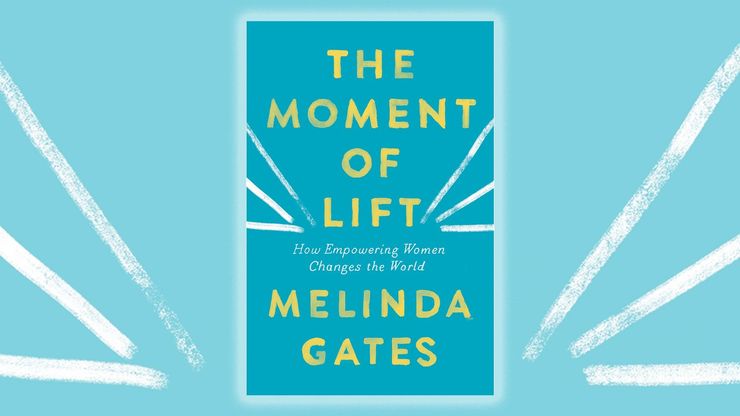Six unbelievable facts about gender inequality
Discover six unbelievable gender inequality statistics taken from Melinda Gates’ new book, The Moment of Lift, and find out why they matter for women’s global empowerment.

Melinda Gates has always believed that all lives have equal value and that no one should be denied a better life because of their gender. In her eye-opening and inspiring book, The Moment of Lift, she illuminates the undeniable link between women’s empowerment and the health of societies across the world. Read on to uncover six startling cases of gender inequality that Melinda talks about in her book, which unbelievably are still a reality in 2019.
Statistics
- The US is one of only eight countries in the world that does not provide any form of paid maternity leave.
Maternity leave has been linked to fewer new-born and infant deaths, higher rates of breastfeeding, less postpartum depression and a more hands-on role for new fathers and while women who have the opportunity of proper paid maternity leave are more likely to stay in the workforce and earn higher wages, the United States and seven smaller nations still offer no such compensation.
- As a result of contraceptive use, there were 26 million fewer unsafe abortions in the world’s poorest countries.
This staggering statistic is really quite simple: greater access to contraception saves lives.
- In low-income countries, for every hundred boys who continue their education after high school, only fifty-five girls do the same.
Access to education is life-changing. Sending girls to school leads to improved literacy, higher wages, and faster income growth. It reduces the chance of premarital sex, lowers the chance of early marriage, delays first births, and helps mothers learn about how to plan and space their births apart. Whilst the benefits are endless, girls around the world continue to face barriers to secondary and post-secondary education.
- On average, women around the world spend more than twice as many hours as men doing unpaid work.
Unpaid work refers to work performed in the home, from childcare, cooking and cleaning, to collecting water and gathering firewood in communities without electricity and running water. In India, women spend an average of six hours a day performing unpaid work, while men spend only one. In the US, women spend an average of four hours a day; men just 2.5. There is no country where the gap is zero. Across their lifetimes, on average a woman will spend seven years more performing unpaid work than a man. Cutting women’s unpaid work from five hours a day to three boosts women’s participation in the workforce by approximately 20 percent. Participating in paid work is hugely significant as it gives women the power, independence and financial resources to achieve equality with their male counterparts.
- Women across the world currently bear the majority of childcare…
But, when fathers take on at least 40 percent of the childcare responsibilities, they themselves are at lower risk of depression and drug abuse, and their children will average higher test scores, have stronger self-esteem, and fewer behavioural problems.
- Gender discrimination is encoded into law in countries across the globe. These are just a few examples:
- 113 countries do not have laws to ensure equal pay for equal work among men and women;
- 104 countries make certain jobs off-limits for women;
- 39 countries have laws that mean a daughter cannot inherit the same proportion of assets as a son;
- 36 countries limit what wives can inherit from their husbands;
- 29 countries restrict the hours women can work;
- 18 countries allow men to prohibit their wives from working;
- 17 countries limit when and how women can travel outside the home;
- It is these antiquated laws that are holding women back from empowerment.
The Moment of Lift


